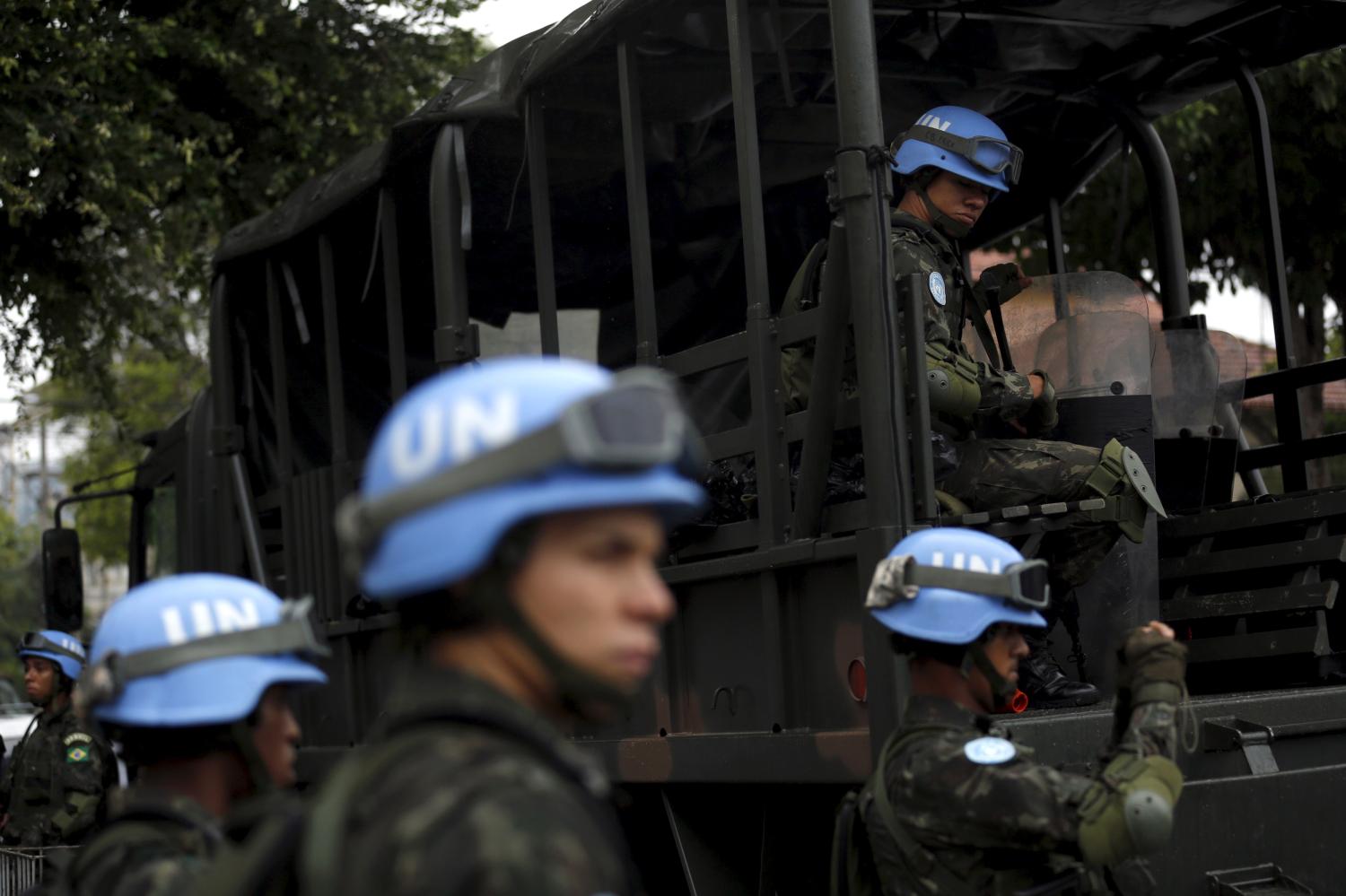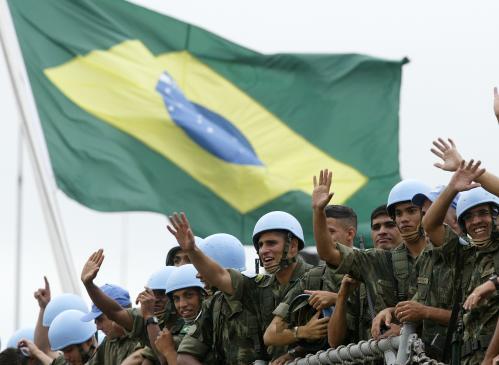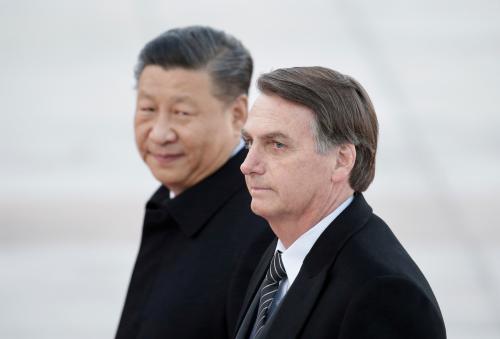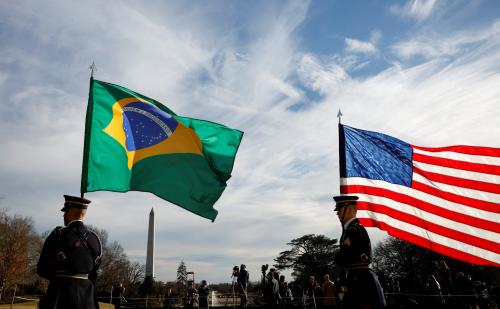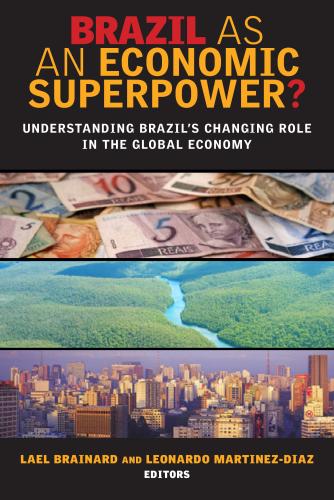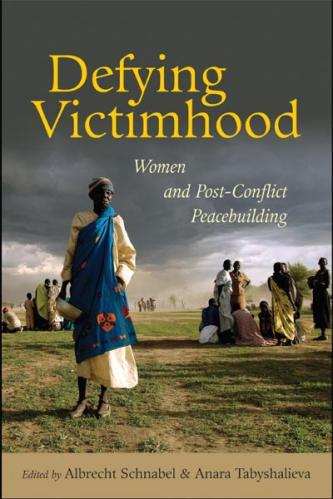Since 2000, a number of “rising powers” have sought a more active global role commensurate with their economic status and regional positions of influence. Brazil, in particular, has followed a high-profile path in seeking to enhance its strategic profile and influence on the international order, even as it faces internal constraints on its capacity to project influence abroad. “Peacebuilding” is one area where Brazil has sought to exercise global leadership, championing the U.N. Peacebuilding Commission and chairing it in 2015. Brazil’s foreign development cooperation funding almost tripled between 2006 and 2010, and its official technical cooperation with numerous countries of Africa and Latin America—including some conflict-affected states—was promoted as advancing peace as well as development.
Drawing on interviews with Brazilian diplomats and official documents, this paper examines the context, key principles, and main mechanisms of Brazilian peacebuilding. It identifies major patterns and trends, including important challenges and contradictions. In particular, we examine whether there is a “Brazilian” approach to peacebuilding and how that approach differs from dominant or Western principles and practices.
Although the concept of “peacebuilding” is not defined in any official documents, Brazilian diplomats use it in a way that encompasses a wider array of activities than the conventional Western usage of post-conflict state-building and reconstruction. The term extends to Brazil’s role in mediating international conflicts in places like Iran, its technical advice and development packages in unstable and post-conflict societies like Mozambique and Guinea-Bissau, and even to its peacekeeping activities in Haiti. The common threads running through these activities are the value that Brazil places upon the “peacebuilding” concept as uniting security and development, and its tendency to elevate issues of poverty, jobs, and equality in security debates and policies, especially in multilateral settings.
As in much of its longstanding policy, but with special ardor under the administration of President Luiz Inácio Lula da Silva (2003-10), Brazil’s peacebuilding initiatives reflect explicit values that enable the country to both participate in Western-dominated debates on security policies and challenge the orientation of those policies. These values or principles–solidarity, demand-driven cooperation, non-conditionality, and non-interference–were invoked by several Brazilian diplomats in interviews as the hallmarks of a distinct “Brazilian way” that can succeed in the global South. Brazilians refer to other traits of this approach, including greater closeness to people in local communities abroad (a point that is often stressed with respect to Brazilian peacekeepers), an emphasis on economic programs and job generation in post-conflict countries, and a reliance on development “cooperation” rather than on aid. In the U.N. mission in Haiti for instance, where Brazil has commanded the military forces for 13 years, it promoted a “peacebuilding” approach to peacekeeping. Brazil partnered with the Rio-based NGO Viva Rio to carry out humanitarian and development initiatives in high-risk communities, including helping to mediate between the Haitian police and shantytown leaders. Brazilian officials tout this less militaristic development engagement in violent communities as key to more effective peace operations.
Strategic interests and historically rooted principles underlie Brazil’s peacebuilding approach. During his 8-year presidency, Lula engaged in a highly visible diplomacy, visiting 27 African countries and opening 19 embassies in the continent. His speeches underscored the idea of solidarity and kinship, stressing that Brazil had a moral debt to Africa due to the heavy influence of African slavery on Brazilian society. Brazil’s expanded development and peacebuilding efforts reflected not just ideological commitments to South-South solidarity, but also a pragmatic recognition that Brazil’s ambitions to transform global power would require the political support of many countries of the global South. That diplomacy opened the door to new Brazilian investments. However, it is hard to argue that Haiti, Guinea-Bissau, or Mozambique offer the most promising markets. Instead, these efforts reflect a strategic desire to play a leading, rather than supporting, role in advancing peace and modeling a developmental approach to security. However, this aspiration faces a variety of challenges, including those related to current resource constraints and political turmoil on the domestic front.

